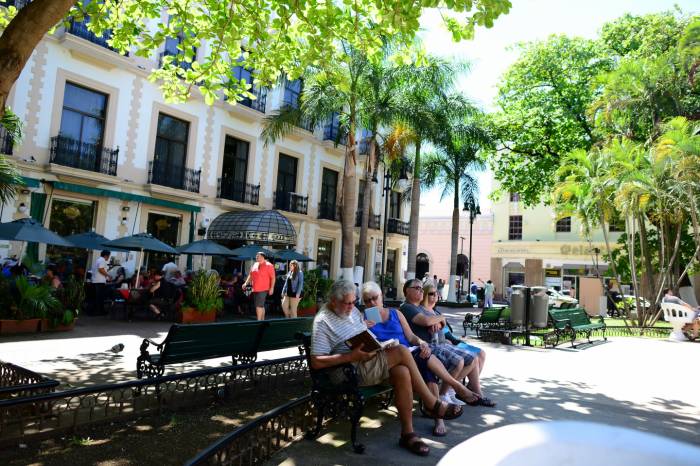If you are currently living in Mexico without a visa or have over-stayed your visa, you should know that the Mexican government has just announced the details of a new amnesty program for expats who live in Mexico illegally.
Last week the amnesty program of 2015 was published in the Federal Register with minor changes and will be brought back for the year 2017. It will be in effect from January 9, 2017 until December 19, 2017.
The first publication of program details was made in the Daily Federal Register on January 12, 2015 and was in effect until December 18, 2015. During that first year of implementation we had the opportunity to see how the National Immigration Institute applied the prior amnesty law, so now we have a good understanding of the slight nuances of the published law.
This program, by the way, mentions nothing about paying fines or having to show income to qualify for residency.
Here is the 2017 amnesty program in plain English:
ASSUMPTIONS (Art. 2)
The present program applies to foreigners who entered Mexico before January 9, 2015 and January 09, 2017 and find they are living in the country with an irregular immigration status. The following situations are where the foreigner would not qualify for the amnesty program:
- Have a pending immigration request except those expressly canceled in order to participate in this program.
- Are in the process of an assisted return procedure or deportation.
- Given false information or false documents to Immigration or authentic documents obtained fraudulently.
- People deported with re-entry restrictions.
- People with pending criminal charges or a criminal record.
- People who compromise national security due to past criminal records.
- People subject to express prohibitions dictated by a competent authority.
- People who have not complied with a deportation order during the program period.
- People who have been illegally in the country after January 9, 2017.
- Anything else covered by the Immigration law and its regulations.
In the cases of V and VI the authority the government will weigh the corresponding resolution attending to the principles of social readaptation as well as those relative to family reunification.
REQUIREMENTS (Art. 3)
Foreigners requesting their regularization (change from illegal status to legal status) for this program need to present the following original documents and copies:
- Immigration request form
- Request letter stating a desire to participate in the program and explaining how they became illegally in the country.
- Passport
- Immigration document (in the event the person had one)
In addition to the prior documents, one of the following documents that proves their residence in the country prior to January 9, 2015:
- Airline tickets
- Passport with entry stamp
- Immigration document (in case the person was regular in Mexico)
- Utility bills (light, water, phone, Internet, TV, gas or any other utility)
- Medical file, school records or rental contracts
- Any other document issued by a public agency that shows the requestor has resided in Mexico.
- Declaration signed by two people who know the person and state the person has lived in the country for the time required.
The documents can be in the name of the person or their children, partner or spouse.
Additional documents required:
- Documents that prove their current residence (light, water, phone, Internet, TV, gas or any other utility).
- Payment of regularization fees (fees can be waived in certain situations)
- Copies of identification papers of people authorized to present papers.
PROCEDURE (Art. 4)
The procedure a person should follow when requesting the regularization of their immigration status is:
- Present documents at Immigration as mentioned prior where they will have a hearing on the spot or a date will be set for a future hearing. The future date will not be more than 10 business days after the papers are turned in.
- Immigration will make a written record of the hearing and go over all the paperwork presented.
- Immigration then has 30 days to give a response. If the response is positive then they will issue a temporary resident document good for four years.
- Once the person has the document they may request work permission as well as documents for family members.
- For the issuance of the document the person will need the original positive resolution and a copy, two copies of the format basico, three photos and payment of fees.
Finally, Immigration may not arrest anyone who applies for the program due to their irregular status.
Source: http://www.expatsinmexico.com/

